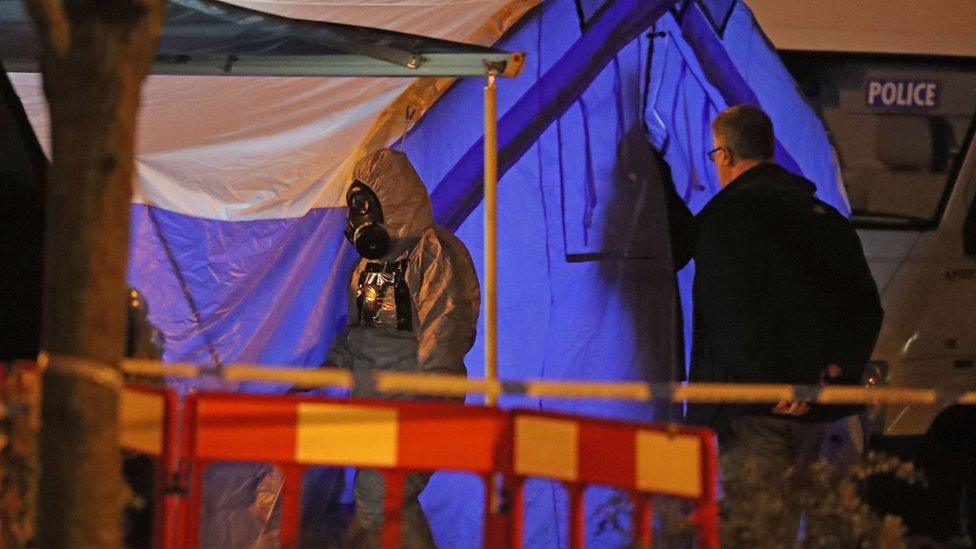Russian spy poisoning: Policeman discharged after Salisbury attack
- Published
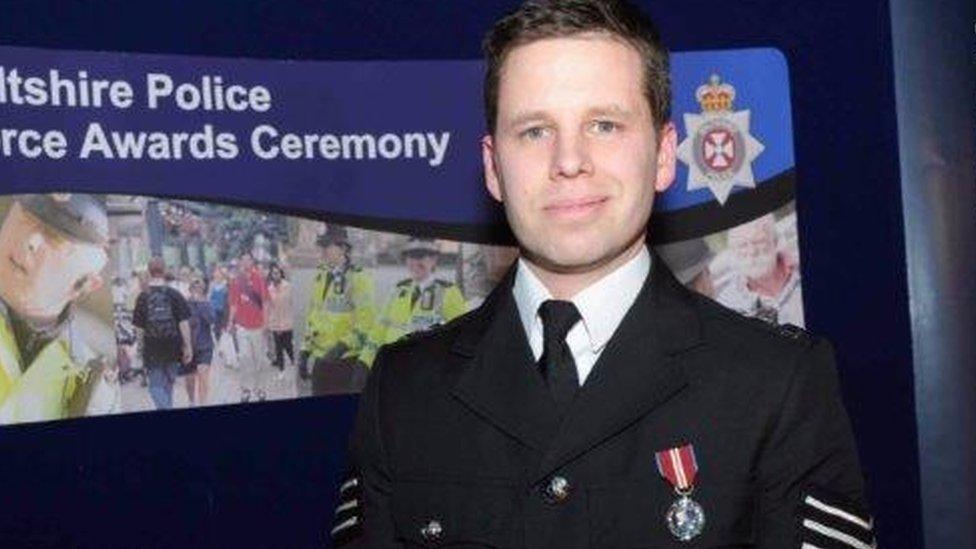
Det Sgt Nick Bailey said he had been "overwhelmed" by support from the public
A police officer who fell ill after being exposed to the nerve agent used on a Russian ex-spy and his daughter has been discharged from hospital.
Det Sgt Nick Bailey was left seriously ill after responding to the attack on Sergei Skripal, 66, and Yulia Skripal, 33, in Salisbury earlier this month.
The pair remain in a critical but stable condition in hospital.
Det Sgt Bailey said that "normal life for me will probably never be the same" as he also thanked hospital staff.
He said in a statement that there were "no words" to explain how he felt, adding: "It really has been completely surreal".
He added: "I have been so very overwhelmed by the support, cards and messages I have received - everyone has been so incredible."
His wife, Sarah, said: "This has quite simply been the most traumatic event of our lives and it feels like our world has been turned upside down in a really short space of time."
Another police officer who responded to the attack on 4 March is being treated as an outpatient by Salisbury District Hospital, the BBC understands.
Since the incident, nearly 50 other people had sought medical advice from the hospital.
Cara Charles-Barks, chief executive of Salisbury NHS Foundation Trust, said medical staff were "working around the clock" to care for the Skripals.
A judge has said it is unclear if the pair, who were found slumped on a shopping centre bench in Salisbury, would fully recover from the nerve agent attack.
Judge David Williams, of the Court of Protection, said their mental capacity may have been compromised to an "unknown" degree.
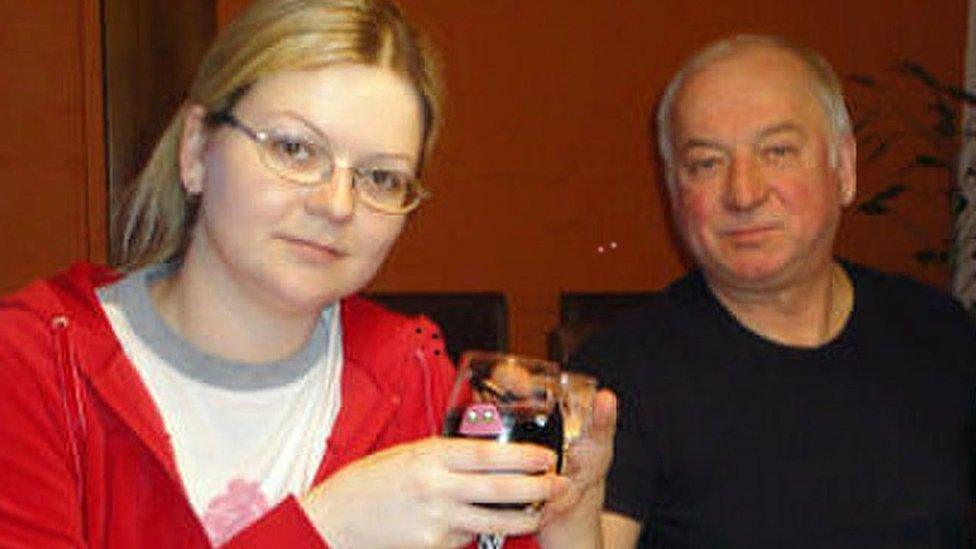
Sergei and Yulia Skripal were found slumped on a shopping centre bench on 4 March
The court, which hears issues affecting the welfare of sick or vulnerable people, has given doctors permission to take blood samples from the Skripals to send to chemical weapons experts.
A team from the Organisation for the Prohibition of Chemical Weapons, which arrived in the UK earlier this week, will conduct the tests.
Delivering the ruling, Judge Williams said: "Medical tests indicate that their mental capacity might be compromised to an unknown and so far unascertained degree."
He said no-one known to Mr and Ms Skripal had approached the hospital where they were being cared for to "inquire of their welfare".
May: Russian threat does not respect borders
Meanwhile, EU leaders have agreed it is "highly likely" Russia was behind the attack, after Prime Minister Theresa May appealed to fellow heads of state for unity.
European Council president Donald Tusk said there was "no other plausible explanation" for the incident.
Earlier, Mrs May told a summit in Brussels that the Salisbury attack was "part of a pattern of Russian aggression against Europe" and stressed the need to stand together.
- Published23 March 2018
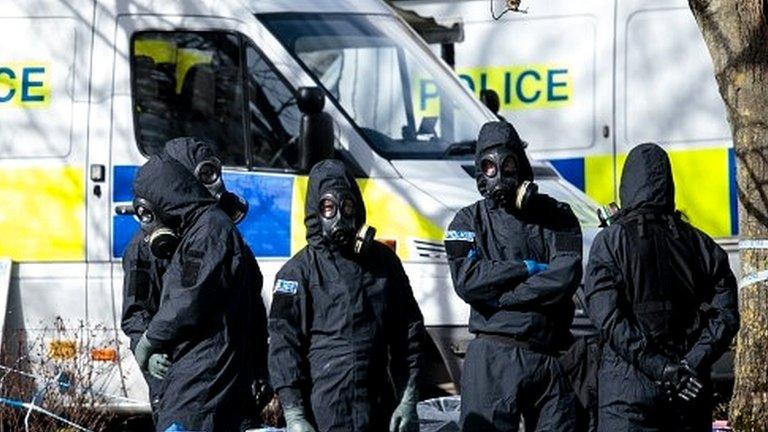
- Published21 March 2018
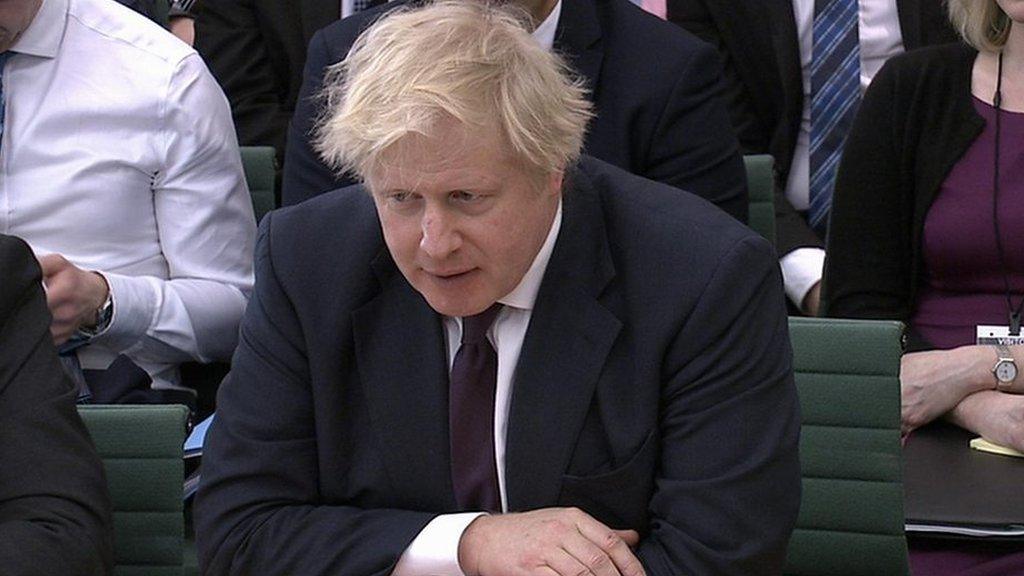
- Published20 March 2018
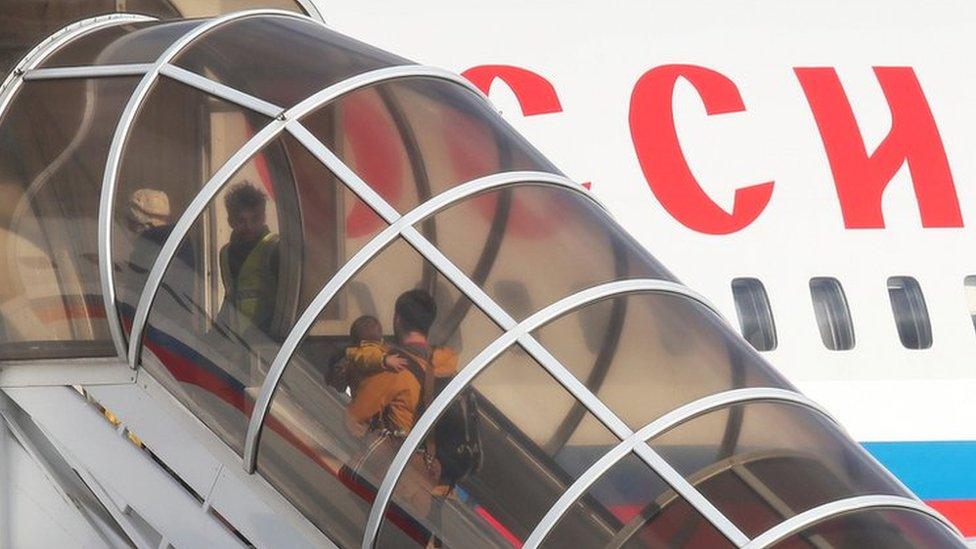
- Published8 October 2018
